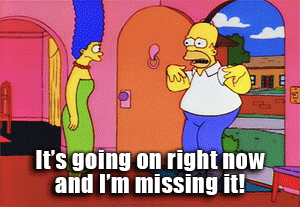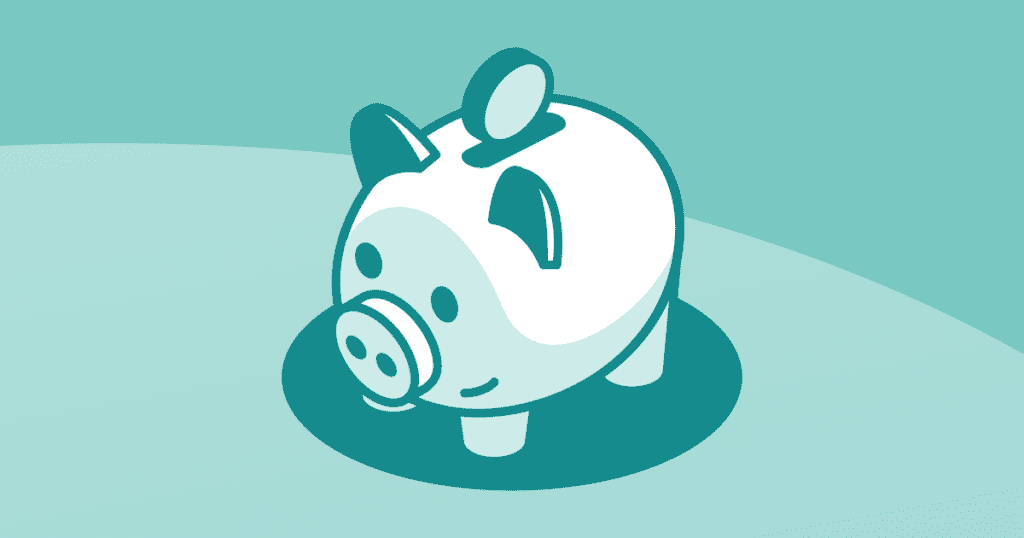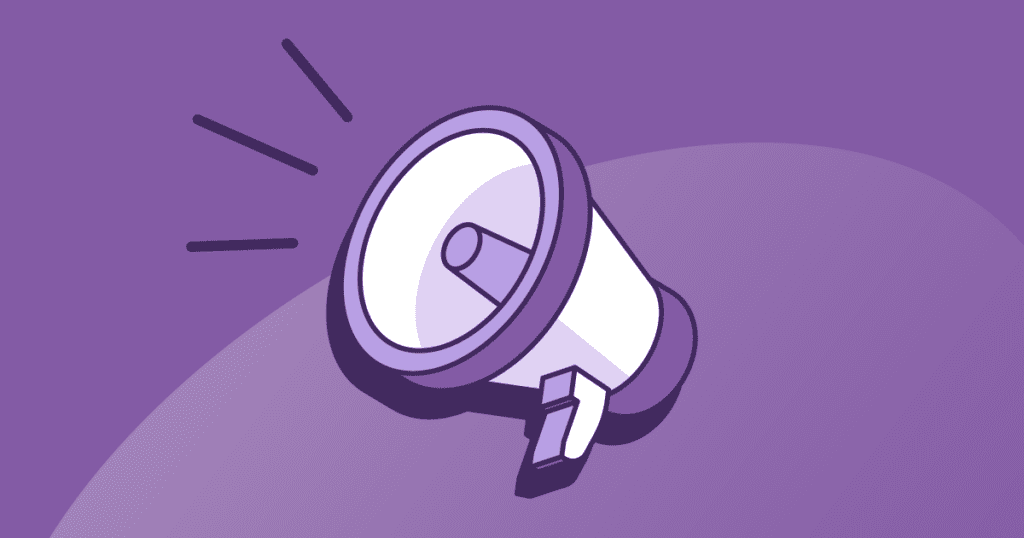“I’m sure there are a lot of overachievers here [who think] ‘I’m not exhausted, I’m fine,’” – Vanessa Zamy
August was National Wellness Month! To celebrate the month of intentional self-care and personal development, we hosted our webinar, Mastering the Juggle: Event Planning without Burnout.
In this live event, we spoke to Aileen Axtmayer (Corporate wellness speaker, Aspire with Aileen), Dr. Sharon Grossman (Doctor, wellness coach), and Vanessa Zamy (consultant, professor, and author). During our lively session, we discussed the signs of burnout and ways to prevent it, so you can live your most successful and fulfilling life as an event planner! Be sure to explore the valuable resources provided by our expert speakers at the end of this article.
As our webinar poll results showed, 70% of our attendees have experienced burnout, and 25% are currently experiencing it. Burnout is here and if we don’t learn how to deal with it, it’ll be here to stay. So, let’s get into the discussion and learn how we can take these percentages all the way down to zero!

What is burnout?
“Sometimes this term can be tossed around in a similar way as stress, and they are related but they’re also different.” – Aileen Axtmayer
We’ve seen it on hashtags, but most of us don’t know what it actually is. The term was coined in the 1970s by Hebert Freudenburger, and was primarily used in the work world. However, we have a much better understanding of this term today. We defined it using three criteria.
Burnout criteria:
- Emotional exhaustion
- Depersonalisation; or, the loss of empathy towards others. A mental distancing of the self from those around the self.
- Decreased sense of accomplishment; a sense of “why bother” or decreased output
If you’ve experienced these three symptoms, you’ve hit burnout. And if you’ve experienced burnout, you know just how damaging it is; not only to your well-being, but to the planning you care so much about. The less you get done, the harder you push yourself; the harder you push the worse your burnout. It’s a vicious cycle that depletes your energy, but it can be broken. This starts with being aware of the warning signs.
Burnout warning signs:
- Dark circles under the eyes at least 10 days in a row
- If you find yourself in bed at night answering non-urgent emails
- Procrastination, a negative change to your usual time management
- Arriving home with a desire to hit the couch and “veg out”
The physical side effects often manifest first, so it’s important to pay attention to your body for these warning signs. That way, you can take action before you break down.

Balancing work and well-being.
“Get clear on your values and your identity-based goals and then see how your actions do or don’t line up with those.” – Aileen Axtmayer
The hustle can feel good, but if you don’t have a balanced lifestyle that preserves your well being, even your precious productivity will be negatively affected. So, let’s talk about the concept that makes us workaholics cringe; work-life balance.
We tend to approach our schedules backwards. We look first at career goals, then schedule our personal goals around those. Instead, Sharon suggests you figure out your well-being goals first then schedule work tasks around these. This ensures that your well-being doesn’t get unintentionally procrastinated into oblivion.
How to plan your well-being:
- Ask yourself, “what activities bring calm, joy, and comfort to me physically and mentally?” 2. List out these activities and the times when you can do them
- Schedule them into your calendar before scheduling your work blocks 4. Commit to seeing these “well-being tasks” through
We don’t always consider the importance of these well-being tasks such as going on a walk, painting, cooking a delicious meal, or reading a good book (not a work-related book). However, they are how you can refuel, so you can give 100% of yourself to the people in your life.

Guilt & FOMO.
“We only can control what we can control. So it starts with us setting realistic expectations on ourselves.” – Aileen Axtmayer
“But I don’t have time!” We love to say this phrase, but the truth is we don’t make the time. We do this for several reasons, but two of the most difficult to overcome are the ugly stepsisters known as guilt and FOMO (Fear of Missing Out). Once you’ve identified the warning signs and established healthier scheduling habits, you’ll have to confront these self-imposed obstacles.
Guilt is nothing more than a thought in the brain. It comes from telling yourself, “I shouldn’t spend time on [insert well-being task here] when I could be accomplishing things.” This thought highlights an important fact about how we view our value. It’s the belief that our needs don’t matter as much as the needs of our clients, bosses, and colleagues. Ask yourself, “How important do I think I am as a person, as opposed to a work machine?”
The fear of missing out will drive you to involve yourself beyond what a level you really want to be. You ask yourself, “What opportunities am I going to miss by not working?” As You overcome this by flipping it. Ask yourself, “What am I missing out on in my life by working?” When you reduce your life to work-only, you miss out on most of the things that give life meaning, leading to a lack of fulfillment and eventually—burnout.
Aileen recommended a book that speaks to this very issue; Atomic Habits by James Clear. As Aileen explained, identity-based motivations are most-effective at changing behaviors. If you’re stuck in a guilt cycle, ask yourself who you want to be and what behaviors reflect that identity.

Managing expectations.
“You are a cup of water, and as you say yes you are pouring sips of water into other peoples cups. [Ensure] you are filling up your own cup as you do that.” – Vanessa Zamy
Okay. So, you’re keeping a look out for the warning signs, you’ve scheduled your well-being tasks, and you’ve put guilt and FOMO to rest. Brilliant! Suddenly, you run into expectations from your boss or clients. The key to preserving your well-being in the face of these expectations is clear communication.
It starts with an awareness of your schedule. Know what you need to get done and how long each task will take. If and when your leaders or clients come in with a request, let them know how this will affect the other tasks on your to-do list. Ask if it’s okay to push back one or two of these in order to complete the new project or task. Oftentimes, leaders have such a global view that they do not know everything that’s on your plate. By helping them understand your workload you can work together to set realistic expectations.
Hard-headed bosses are intimidating, but its our personal expectations that are often the most challenging. We’re only human, and kicking yourself when you’re down will only ensure burnout occurs sooner. Pay attention to your self-talk when things go wrong and how it makes you feel.
Contingency plans are wonderful, but you can only plan for so much. At the end of the day, the events world is full of unexpected challenges. The best way to handle these without burning out is to have faith in your abilities to handle whatever gets thrown your way. This core trait can be further augmented by breath work, meditation, and any other practice that improves your ability to remain calm under pressure.

Beating imposter syndrome.
“Look at how much energy we’re spending on things that aren’t really real; they’re just made up in our heads… Imposter syndrome creates so much anxiety.” – Dr. Sharon Grossman
It’s hard to have faith in yourself when you feel like an imposter, so let’s get rid of those unhelpful thoughts! Imposter syndrome can kick in at any stage of a planner’s journey, and despite previous successes; we never see ourselves the same as we see our role models.
The problem is the story you’re telling about yourself, which usually sounds like, “I don’t belong here, and when I fail, everyone will know.” Untangle this web by studying the evidence. Be as objective as possible, ask: “Where is the evidence for this belief?” “What do I do really well?” “Why do people have faith in me?” This will help you build a balanced self-image.
Fear of failure can drive us to put unrealistic expectations on ourselves. Suddenly, everything is due yesterday! Ask yourself, “What am I telling myself that leads to the belief that everything is due yesterday?” As you remove these unhealthy expectations, the job will feel more manageable and you’ll feel more capable.
If you are a one or two person team, then these unrealistic due dates are 100% coming from you and can be easily adjusted. It’s easy to assume that this unhealthy stress is coming from outside of us, but often it is self-imposed—which means you have the power to fix it!

Everything you need.
Burnout may be the buzz word of the day, but it’s popularity is not a sign of its difficulty. You have everything you need to prevent burnout. It starts with awareness; awareness of the warning signs, of personal values, and of deadlines. Once you’re aware, you can design a lifestyle that maximizes productivity and well-being at the same time.
Fortunately, our guest speakers offered resources to help you step into this new way of living!

Q&A.
Our webinar had some fantastic questions which broadened the discussion of burnout. Below are answers to some of the questions for those seeking further information. And if you found this article helpful, you can explore the conversation in detail with our webinar playback.
How do you tell if burnout comes from your role or the industry at large?
It can be tricky to know whether or not you need to make a major transition or slight adjustment. Aileen suggested the popular Designing Your Life course that was created by Stanford University. This popular course is available online and can help you establish a plan for your ideal lifestyle which includes career and personal goals.
Once you’ve established your values and designed a lifestyle around them you’ll have a helpful map against which to compare your current work situation.
How do you manage the stress of others around you?
Take an inventory of the people who add stress to your life and those who take it away. Where you can, limit the time you have to spend with the people who contribute to your stress levels. If you need to, schedule 30 minute breaks following a meeting with a particularly stressful boss. Breathe work can help you prepare before and recover after. Sometimes, you’ll need to remove these people from your lives, especially if they’re friends who’ve become a source of stress.
How do you avoid burnout when you thrive on chaos and feel bored during “lulls”?
If we’re attracted to chaos in the workplace, there’s a good chance we grew up with chaos in our childhoods; we’re comfortable with what’s familiar. This doesn’t mean that your body is benefiting from this, though. There is a form of healthy stress called Eustress. It’s the adrenaline rush that sharpens your focus and fuels your actions, like an athlete. However, if you find your body entering flight or flight, you’ve crossed over into “bad stress.”
This stress damages your ability to think critically and creatively. If you enjoy Eustress, that’s perfectly fine! If you are drawn to negative stress, however, it may be time to work on yourself to overcome childhood misconceptions.
It’s also important to consider how we use stressful situations to boost our egos. As Vanessa said so well, “It doesn’t make you not an achiever because you chose to go the easy way.”
How can teamwork and collaboration help in alleviating the stress of event planning?
Sharon: When we work together as a team, we can distribute tasks, share responsibilities, and leverage each other’s strengths, which lightens the individual load and reduces overwhelm. Moreover, the power of collaboration extends beyond the division of tasks; it provides emotional support too. One fascinating aspect of stress is the release of oxytocin, triggering what’s known as “Tend and Befriend” response. Connecting with colleagues and engaging in social interactions during planning not only enhances our problem-solving abilities but also helps us feel less stressed. The camaraderie and mutual support that come with teamwork can be a powerful antidote to the challenges and pressure associated with event planning.
What are some ways that event planners can delegate tasks effectively to prevent becoming overwhelmed? And – What advice would you give to event planners who are hesitant to delegate tasks due to concerns about quality or control?
Aileen: If you’re hesitant to delegate, ask yourself if your concerns are rooted in fact or fear. Has the person given you any reason not to trust that they’ll manage the work well? If the fear is not rooted in reality, you may have some perfectionist tendencies to explore and work through. If the quality of work has been an issue in the past, start with delegating less critical tasks to rebuild trust and establish consistent check-ins.
Sharon: Start by clearly defining the tasks and outcomes you want to achieve. Identify team members’ strengths and assign tasks that align with their expertise. Communication is key – provide clear instructions, expectations, and deadlines. Regular check-ins help ensure tasks are on track. To address concerns about quality or control, establish guidelines and standards for each task. Embrace open communication, offer support, and encourage team members to ask questions. Remember, delegation isn’t about losing control; it’s about empowering your team and focusing on strategic aspects.
Could you provide examples of self-care practices that have proven effective in maintaining wellness during the event planning process?
Aileen: Sleep, sleep, sleep. Event planning can at times be a unique combination of tasks that require strong attention to detail and focus, and then intense physical output (lifting set-up items, running around on your feet for hours). Both have better outcomes if you get good quality and quantity of sleep. Breath work. If you’re able to notice when you’re stressed out and simply take some deep belly breaths to help regulate your nervous system, it can make all of the difference. This is a favorite because it can be done anywhere, any time… you just need to remember to do it!
Sharon: I haven’t worked with event organizers specifically to say that certain self-care practices during event planning, but I can tell you from my experience of working with many professionals in high stress jobs that the thing that works best is carving out time for yourself ahead of time. It also depends whether you are looking to destress or recharge and align your activities accordingly.
How can you prioritize tasks when everything seems like a priority?
Sharon: If everything seems like a priority, it’s a sign that you are overwhelmed and that you lack clarity. I recommend taking a step back and looking at the big picture. Meditation can be very helpful as could other forms of grounding. Identify the goal and work backwards – what is the most essential thing to focus on first to get this done? What’s second, third, etc?
Additional Resources.
Aileen’s resources:
Aileen came in once again with the book recs! Burnout: the secret to unlocking the stress cycle is a great resource for further education. She also has a workplace wellness guide which includes guided meditations and yoga exercises.
Sharon’s resources:
Sharon designed an event organizer tool kit which can help you manage your schedule to achieve maximum balance.
Vanessa’s resources:
Vanessa hosts a Productivity Breakthrough workshop which, among other things, can help you gain clarity around scheduling needs and the strategies to realize your goals.




